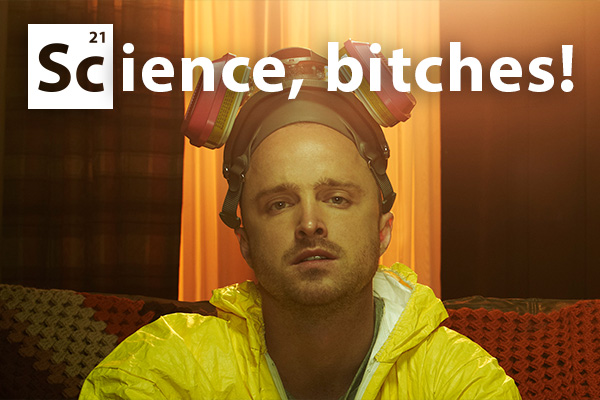Science, Bitches | Issue 16
About time
There are many ways to alter our perception of time. We can sleep or otherwise lose consciousness. We can take some drugs – stimulants (like caffeine) will slow down time for you, while depressants (such as alcohol) will speed it up. Psychologists have also found evidence supporting the intuitive notion “time flies when you’re having fun.” So if alcohol is not making time disappear for you, then maybe stop drinking alone or around people you don’t like.
While the speed with which we perceive time can seem to change, we still observe a clear sense of order and direction. The plate you were drying doesn’t break before it hits the ground and you never wake up and find that today is yesterday. Scientists call this the “arrow of time.” Unless you put energy into a system, its disorder, called entropy, will increase along the arrow of time. You could think of your bedroom as an analogy. This allows us to see a well-defined past (tidy bedroom) and future (not-so-tidy bedroom).
Einstein’s relativity teaches us that the speed of time can be altered. For instance, things moving faster experience time as being slower. A year for a time traveller moving near the speed of light is a lot more than a year for those of us going about our daily lives. In this way the time traveller journeys to Earth’s future. The important thing to note is that the time itself is changing here, not our perception of it like when we were having fun earlier.
If we had the ability to accelerate a person to near-light speed we could send this person to the future. As you can imagine, this is no small task. Even if we were able to achieve it, accelerating a person to light-speed without crushing them would take months. And to spaceships and people travelling near the speed of light, diffuse interstellar hydrogen atoms become a destructive and highly ionizing radiation. Your test-subject would die.
Having weighed the pros and cons you may now have decided that travelling to the future isn’t desirable after all. How about visiting the past? Whether travelling back in time is possible is an open question. It might require the existence of wormholes – hypothetical structures that would allow jumping from one point in space and time to another without going through the intermediate points, like tunnelling.
As for a definition of time, in science this is often given, maybe unsatisfactorily to some, as “what clocks measure.” Time is in the gap between cause and effect. It allows things to evolve. Understanding time is an interdisciplinary effort, which includes but is not limited to science.







